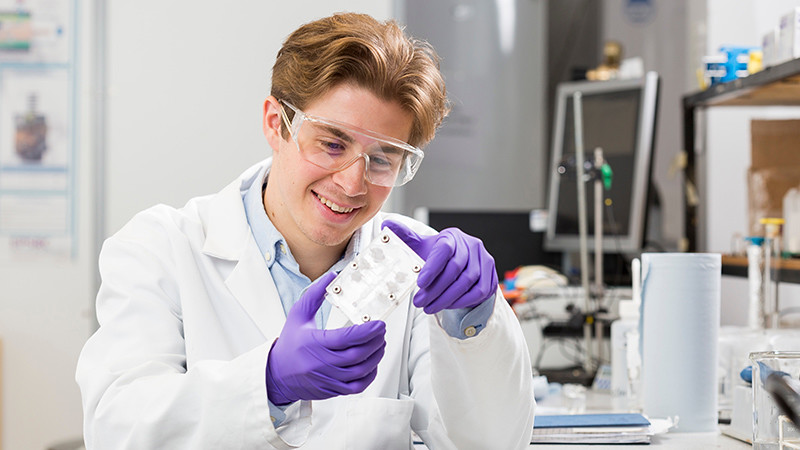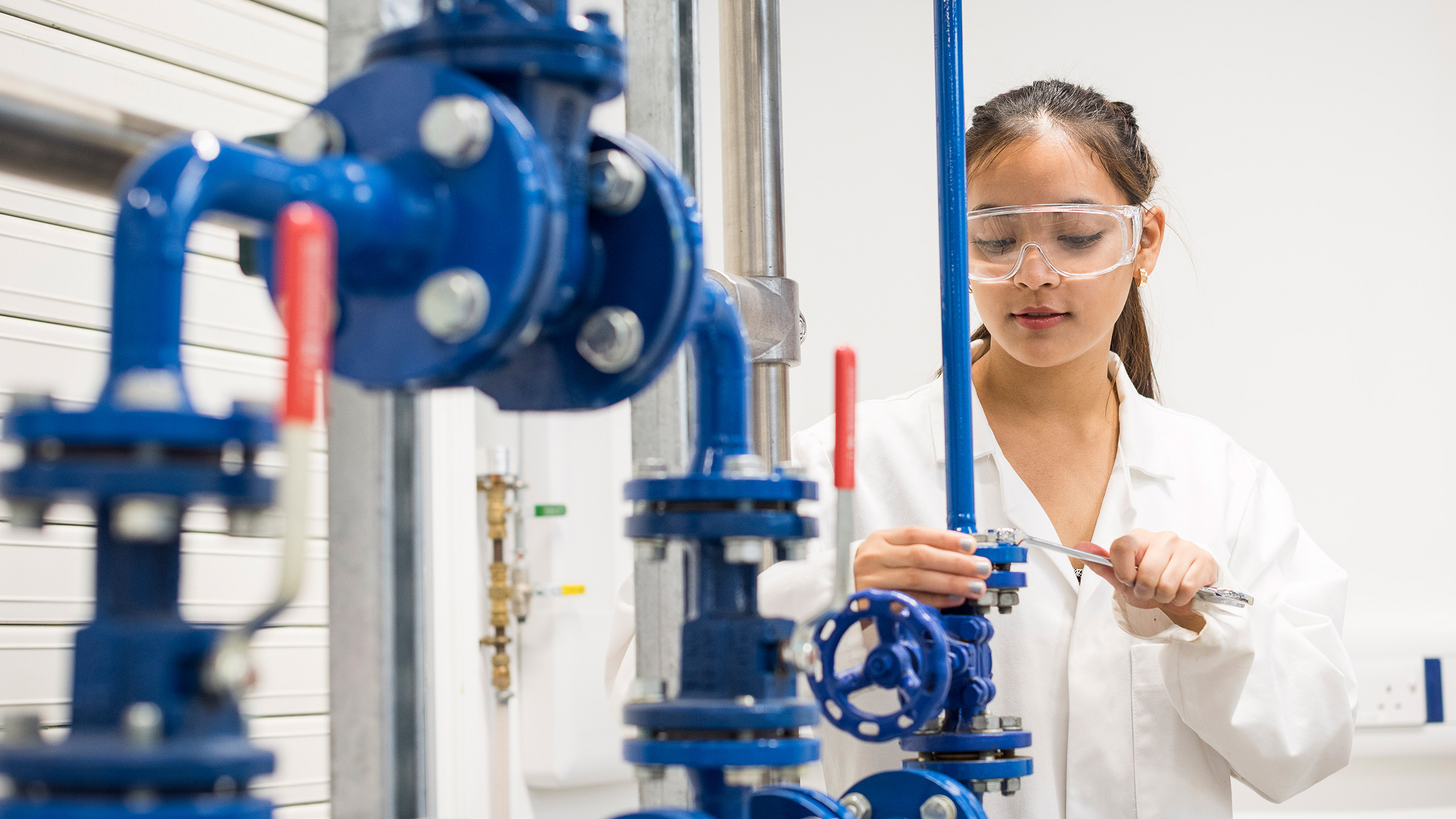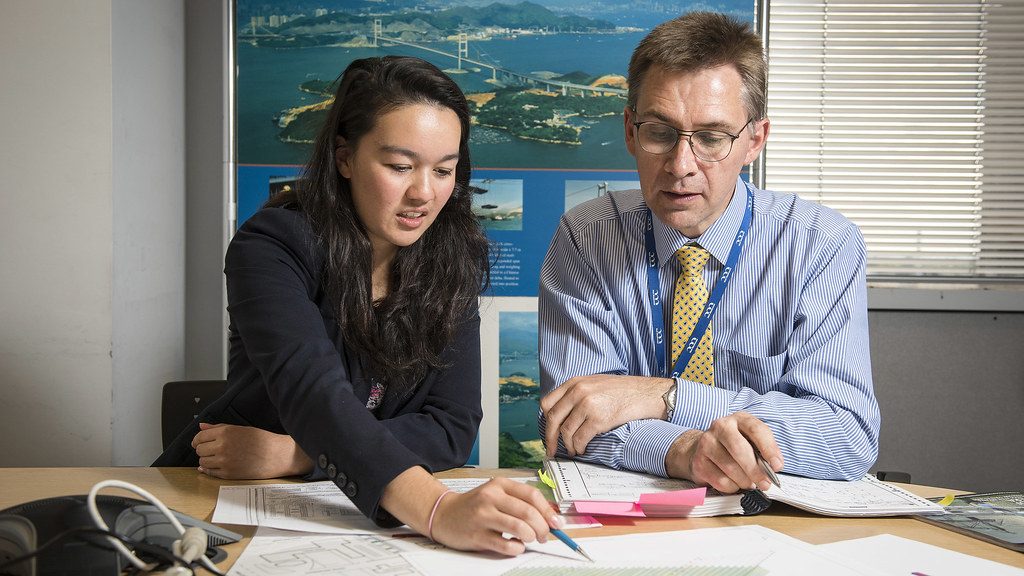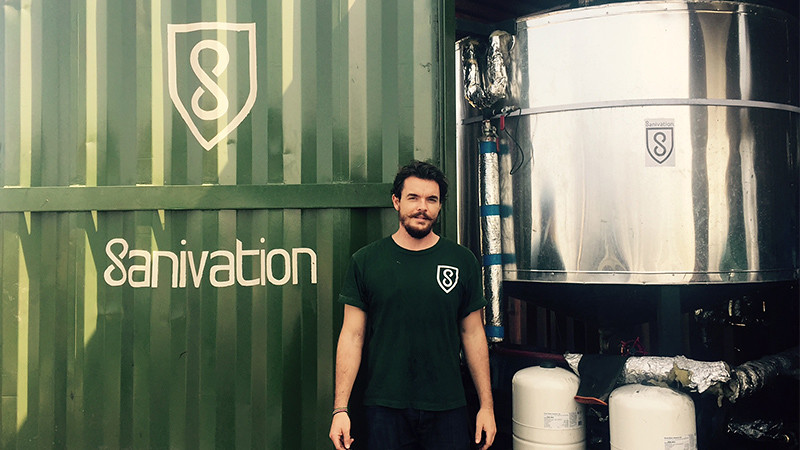During their degree, our MEng students work on a three-month long research project. This can be experimental, literature-based or theoretical/computational. It can be an opportunity for students to use specialist equipment and work alongside academic researchers in one of our research centres.
For Luke's project, he investigated enzymatic biofuel cells in our Centre for Sustainable Chemical Technologies alongside Dr Mirella Di Lorenzo and her team: "The opportunity to work on material that was genuinely new ground within research felt really exciting to me. Microfluidic technology is a rapidly expanding field with the potential to change the way we monitor and treat our health through wearable technology powered by our own bodies."
A researcher in the Department had already designed and manufactured a biofuel cell that could generate energy from blood glucose. This cell would be able to power devices that could be developed to help manage diabetes, such as tiny insulin pumps and blood monitoring mechanisms. Luke investigated how to redesign this cell so it would be more comfortable to wear and economic to manufacture.
"Very early on I met with my supervisor and we discussed what we wanted to try to achieve in the short research window. We decided we wanted to utilise cheaper materials to bring the cell cost down, and decrease the size of the cell by about a factor of ten so it could be more easily worn on a skin patch."
Developing transferable skills
Luke's project involved critically reviewing the existing literature, planning out a laboratory schedule and then evaluating his results in a professional report and poster. "I really learned how to plan my time effectively to allow enough availability for things not going your way in the lab. I've been able to apply the skills I learnt on this project during my industrial placement at ExxonMobil, in planning trials and having to get to know new topics very quickly."
Due to the limited time available for the project, students are not always able to reach a neat conclusion from their investigations, a situation they may find themselves in at the workplace: “We discovered that the device would function at the smaller scale, but struggled with the lack of robustness. If I had the time again I would focus on only one variable element rather than trying to change the size and the material. We still identified some ways that the project could be developed further, and some exciting new design styles for the device though."
Pursuing more research opportunities
Luke is now considering studying for a PhD to carry out further research, but it was the variety of careers open to chemical engineering graduates that initially interested him in studying the subject. "I was keen on the fact that chemical engineering took material from a range of sources, giving a diverse platform from which to start a career; a career which could range from finance, or banking, to process engineering or even further education through research.
"The chemical engineering course at Bath appealed to me because of its focus on mathematics and problem solving. It felt like a degree that would be really close to the cutting edge of what was being researched and discovered."



